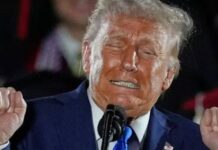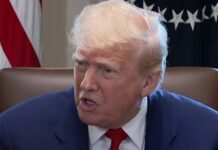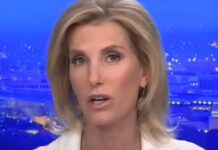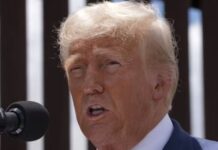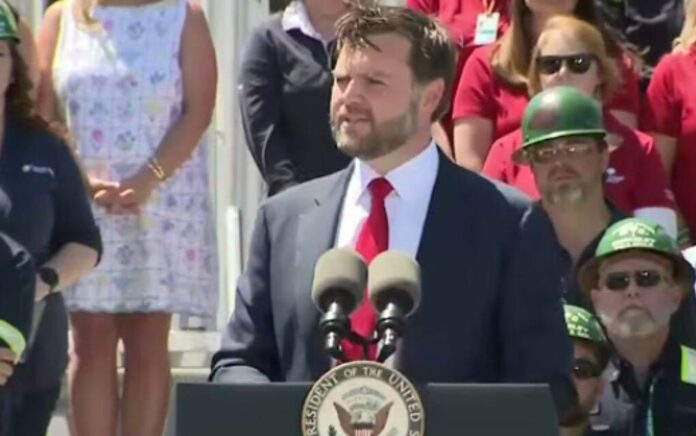
The vice president is one of Donald Trump’s most trusted allies. That’s why he knows about almost every move the president is trying to make.
And JD Vance has unveiled details of Trump’s new plan that will blow your mind.
In a shake-up of his administration, President Donald Trump has tapped former National Security Adviser Mike Waltz to serve as the United States’ ambassador to the United Nations, a decision Vice President JD Vance described as a “promotion” for the Florida Republican.
The announcement, made Thursday, marks a significant pivot for Waltz, who spent just 102 days in his prior role before being reassigned to represent the U.S. at the world’s diplomatic hub in Turtle Bay.
Vance, speaking on Fox News’ Special Report with host Bret Baier, emphasized Waltz’s contributions to the administration’s early priorities. “We brought Mike on to do some serious reforms of the National Security Council. He has done that,” Vance said. “I like Mike. I think he’s a great guy. He’s got the trust of both me and the president, but we also thought that he’d make a better UN ambassador as we get beyond this stage of the reforms that we’ve made to the National Security Council.”
The vice president pushed back against speculation that Waltz’s reassignment was a demotion. “I think you can make a good argument that it’s a promotion,” Vance told Baier, noting that Trump’s decision to nominate Waltz for a Senate-confirmed role signals confidence in his abilities.
“I think the media wants to frame this as a firing,” he added. “Donald Trump has fired a lot of people. He doesn’t give them Senate-confirmed appointments afterwards. What he thinks is that Mike Waltz is going to better serve the administration, most importantly, the American people in that role.”
WATCH:
Waltz’s nomination, which requires Senate approval, came as a surprise to many inside and outside the White House. Initially, Rep. Elise Stefanik (R-NY) was slated for the UN ambassador role but was later asked to remain in Congress to strengthen the House Republican majority.
Adding to the intrigue, Waltz’s tenure as national security adviser included a notable misstep when he accidentally added Atlantic editor-in-chief Jeffrey Goldberg to a Signal group chat discussing military plans to strike Houthi targets in Yemen.
Trump publicly backed Waltz at the time, and sources suggested to the New York Post that the president deliberately delayed Waltz’s reassignment to assert his authority over personnel decisions.
In the interim, Secretary of State Marco Rubio will take on the role of national security adviser while continuing to serve as the nation’s top diplomat, a dual responsibility that highlights the administration’s fast-paced agenda.
Vance also addressed the leaked Signal chat, which revealed his own reservations about the proposed Houthi strikes, including a comment that the U.S. was “bailing Europe out again.”
Clarifying his stance, Vance told Baier the discussion was about strategic communication, not policy dissent. “If you go back to when those messages were leaked, what we were doing is having a private strategic conversation about how to message this to the American people,” he said.
“It’s always important to explain what you’re actually doing, how to ensure that some of our allied countries that are under spending on their own defense, are actually carrying some of the burden. That was a concern that I raised about this particular operation, but I wasn’t overruled.”
Waltz’s appointment to the UN marks him as the first major figure to exit a top role in Trump’s second term, but the administration frames the move as a strategic realignment rather than a setback.
As Waltz prepares for his new diplomatic mission, all eyes will be on how he navigates the complex global stage—and whether this “promotion” lives up to its billing.
Stay tuned to The Federalist Wire.



